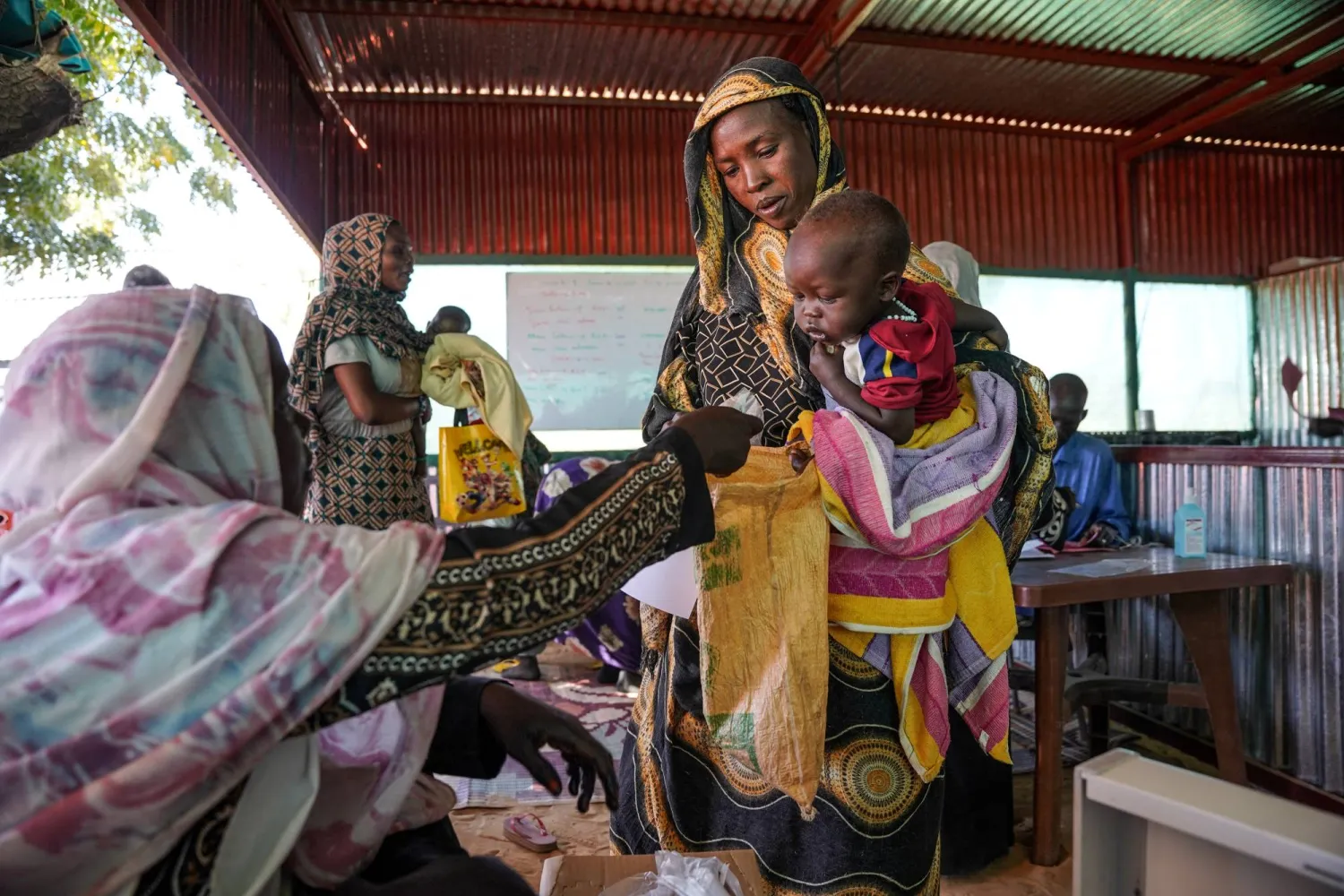Khadir Ali and his family managed to survive a harrowing paramilitary attack in war-torn Sudan. But by the time they got to safety, he realized that one person was missing.
"We escaped in total chaos -- there was gunfire coming from every direction," said the 47-year-old civil servant of the October 22 Rapid Support Forces attack on Rufaa in al-Jazira state.
"But once we got out of the city, we noticed my nephew wasn't with us," he said.
Mohammed, 17, suffers from a congenital skin condition and "needs special care".
The teenager is among scores of people reported missing as the RSF stages major attacks across eastern al-Jazira state after a high-ranking officer from the area defected to the army.
In retaliation, the RSF has been "killing people in their homes, in markets and on the streets, and looting property including from markets and hospitals", rights group Amnesty International said on Wednesday.
"Six days have passed, and we know nothing about him," Ali said, speaking in New Halfa in Kassala state.
He and his family have taken refuge there after an arduous 150-kilometer (90-mile) journey.
At least 124 people have been killed and dozens wounded in the fighting in al-Jazira state over the past 10 days, according to the United Nations.
The death toll for the whole month is at least 200.
War has raged in Sudan since April 2023 between the army under the country's de facto ruler Abdel Fattah al-Burhan and the RSF, led by his former deputy Mohamed Hamdan Daglo.
The conflict has triggered one of the world's worst humanitarian crises. More than half the population -- 25 million people -- face acute hunger.
'Entire families' missing
The UN Office for Humanitarian Affairs (OCHA) reports that more than 119,000 people have fled from al-Jazira state amid the recent surge of violence.
Mohamed al-Obaid from al-Hajilij village in the state told AFP his story.
"So far, we've counted 170 missing from our village. Entire families are unaccounted for," he said from New Halfa, where some children arrive unaccompanied by family members.
Since February, communications networks and internet services have been almost entirely severed in the state, making it practically impossible to check on someone's whereabouts.
Activist Ali Bashir, who helps people get away from villages in eastern al-Jazira, said "the communications blackouts are making the missing persons crisis even worse".
Sudanese social media are filled with posts about missing persons, with activists sharing the pictures and names, many of them children or elderly.
Earlier this month, intense clashes between the army and the RSF spread to al-Jazira's Tamboul city.
Just hours after the army said it had taken control of Tamboul, witnesses reported that the paramilitaries were continuing to operate there, causing thousands of civilians to flee.
Among them was trader Osman Abdel Karim, who lost track of two of his sons during fighting on October 19.
"Two of my sons, one 15 and the other 13, were outside when the attack began that Saturday night, and we had to leave without them," the 43-year-old said.
"Ten days have passed, and we don't know if they're dead or alive."
Dead or Alive? Scores Missing after Sudan Attacks

FILE PHOTO: A handout photograph, shot in January 2024, shows a woman and baby at the Zamzam displacement camp, close to El Fasher in North Darfur, Sudan. MSF/Mohamed Zakaria/Handout via REUTERS

Dead or Alive? Scores Missing after Sudan Attacks

FILE PHOTO: A handout photograph, shot in January 2024, shows a woman and baby at the Zamzam displacement camp, close to El Fasher in North Darfur, Sudan. MSF/Mohamed Zakaria/Handout via REUTERS
لم تشترك بعد
انشئ حساباً خاصاً بك لتحصل على أخبار مخصصة لك ولتتمتع بخاصية حفظ المقالات وتتلقى نشراتنا البريدية المتنوعة







